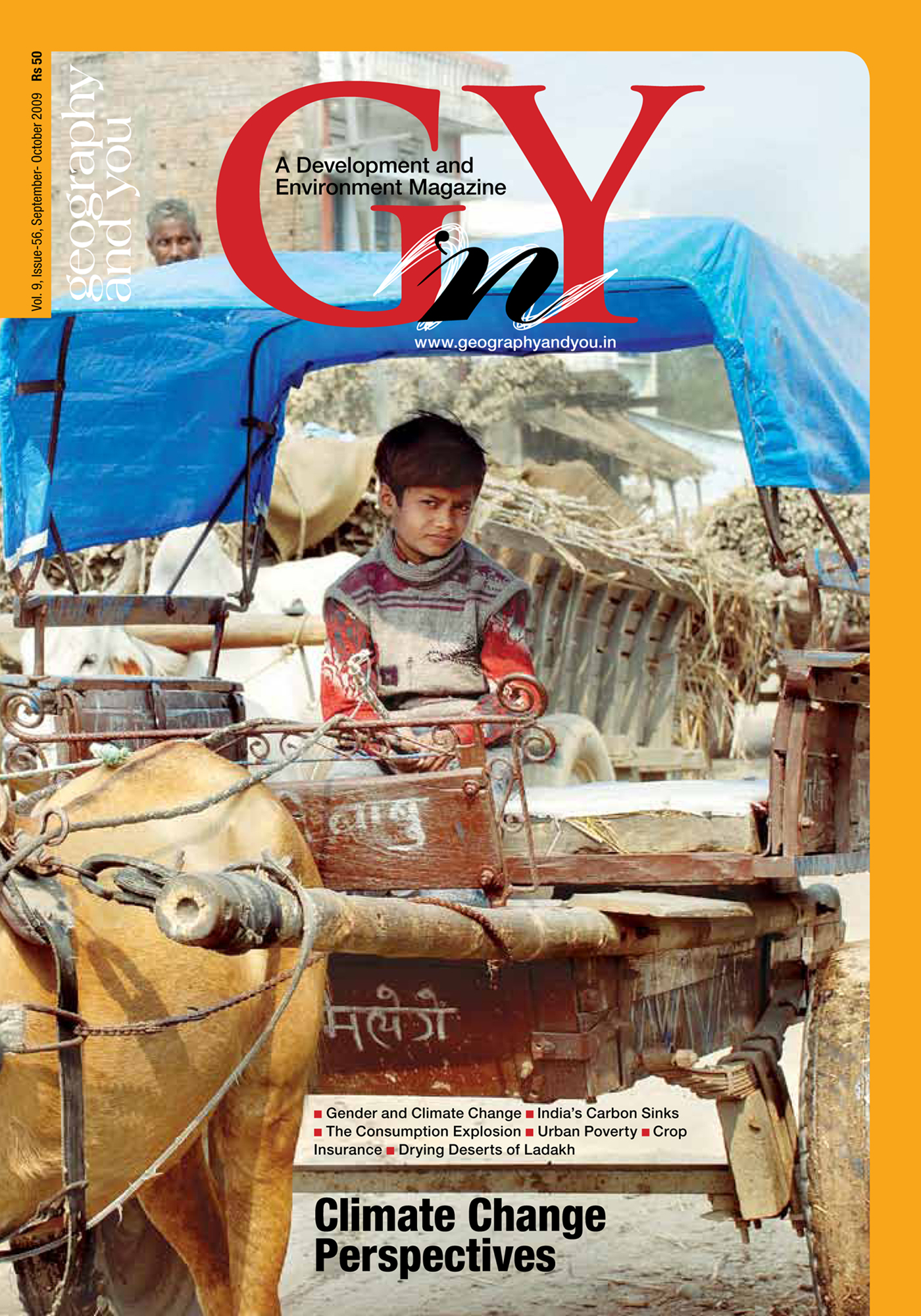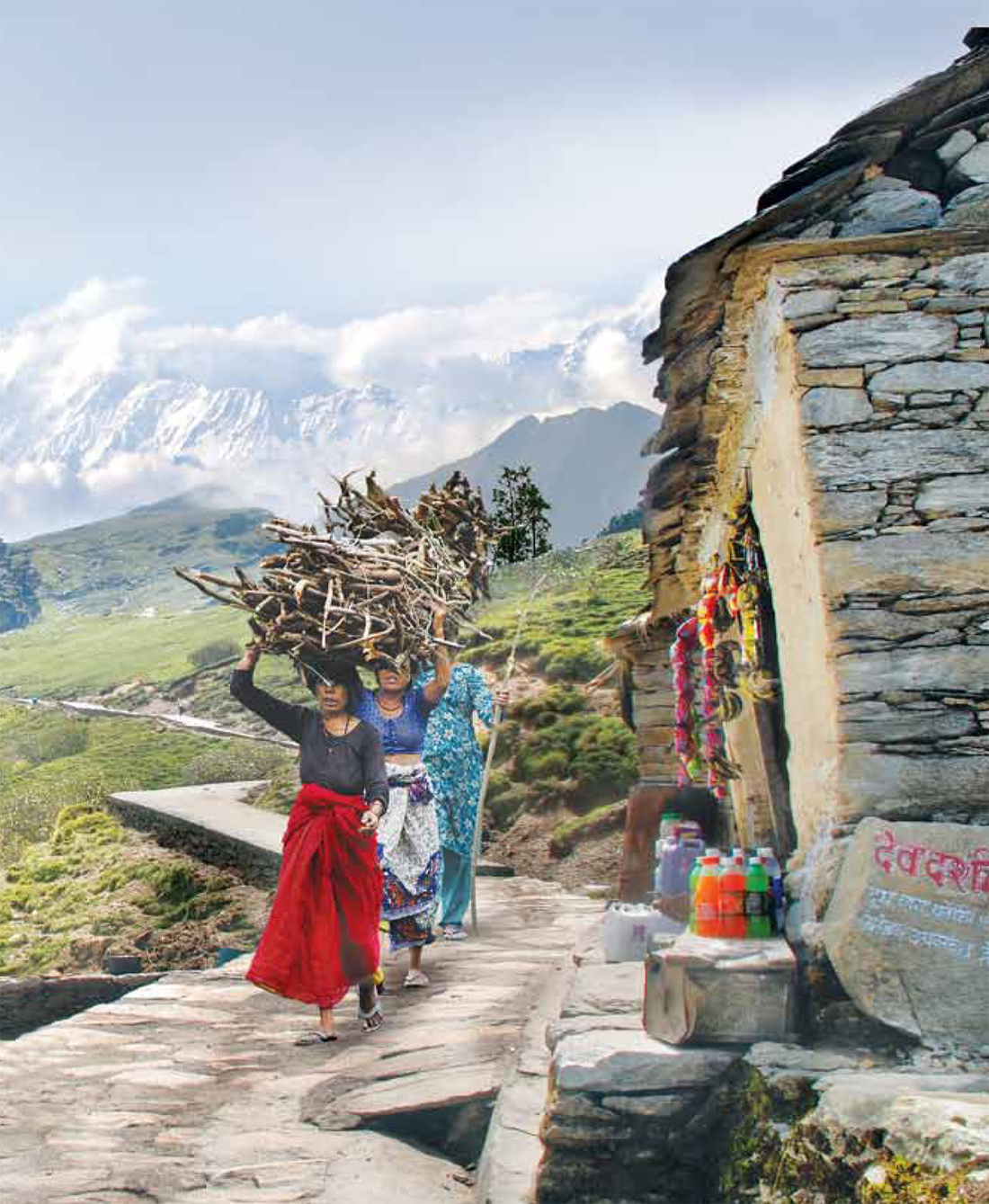
Inside this issue
Gender and Climate Change
Climate change is quite obviously something that affects everyone. However the effects of these changes and the policies meant to deal with climate change can be gendered. It is true that the interface between gender and climate change is still being conceptually understood. But it is clear that women, landless farmers and others who lack access to markets especially in the developing world will be further marginalised.
The village of Dekheta in Orissa, was selected as a field research base by Central Rice Research Institute (CRRI), Cuttack, in 2008 just before the monsoons. The results were so encouraging that today the women here have organised themselves to create a flood-resistant paddy seed bank with technical help being offered by CRRI.
Reports and Studies
Over the last two decades, sustainable management of forests have reversed deforestation and have transformed India’s forests into a significant net sink of carbon dioxide.
Until recently, most emission studies carried out in developed countries have applied techniques that do not necessarily reflect ground realities in developing countries. To develop a fact-based perspective on climate change in India, Ministry of Environment and Forests recently supported a set of independent studies.
Despite being projected as engines of growth, towns and cities in India have a high incidence of poverty. However, the poverty rates vary significantly across states as also across urban centres.
Water woes
Studies show that 35 per cent of Ladakh’s glaciers will have disappeared in two decades. Nothing reflects the dismal situation more clearly than the rising water scarcity that is affecting the lives of every inhabitant of the region.
Interventions
Increasing global exploitation of fresh water has led to drying up of rivers at several places. The socio-economic consequences of disruption and collapse of riverine systems are often profound as people are much more dependent on natural riverine services than is immediately apparent. In response the concept of environmental flows has been developed in the recent decades.
The ICMAM Programme ICMAM is entrusted with the development of expertise in specialised areas relating to adoption of the concept of integrated coastal zone management to analyse problems prevalent along coastal marine areas and develop integrated management solutions.
Opinion
The strategic region of Afghanistan is again been subjected to The Great Game, which has been played for centuries by the western powers on one side and Russians in their various political manifestations on the other.
Plotting the rich-poor divide on a map of environmental responsibility. Climate change poses the challenge of finding just and politically acceptable ways of defusing the consumption bomb. Environmentalists in India and around the world were quick to see the downsides of the Tata Nano that would lock many more millions into private road transport for the rest of their lives.
Traveller's Diary
Narkanda in summer offers a spectacular view of the snow capped Himalayas, apart from offering a delectable spread of fruits. The apple boughs in Thanedar, laden with green apples, adorn every hedge interspersed with cherry trees bearing a bountiful ripe red harvest.
IN CONVERSATION WITH
Dr Amitabh Kundu, Professor of Economics, Jawaharlal Nehru University, New Delhi.
In brief
Dear readers, Global warming is real and it is man made. But statements about strong, ominous and immediate consequences of global warming are often exaggerated as scientists who have contributed articles to us have shown. What India perhaps requires is need-based focussed or smart solutions to put

